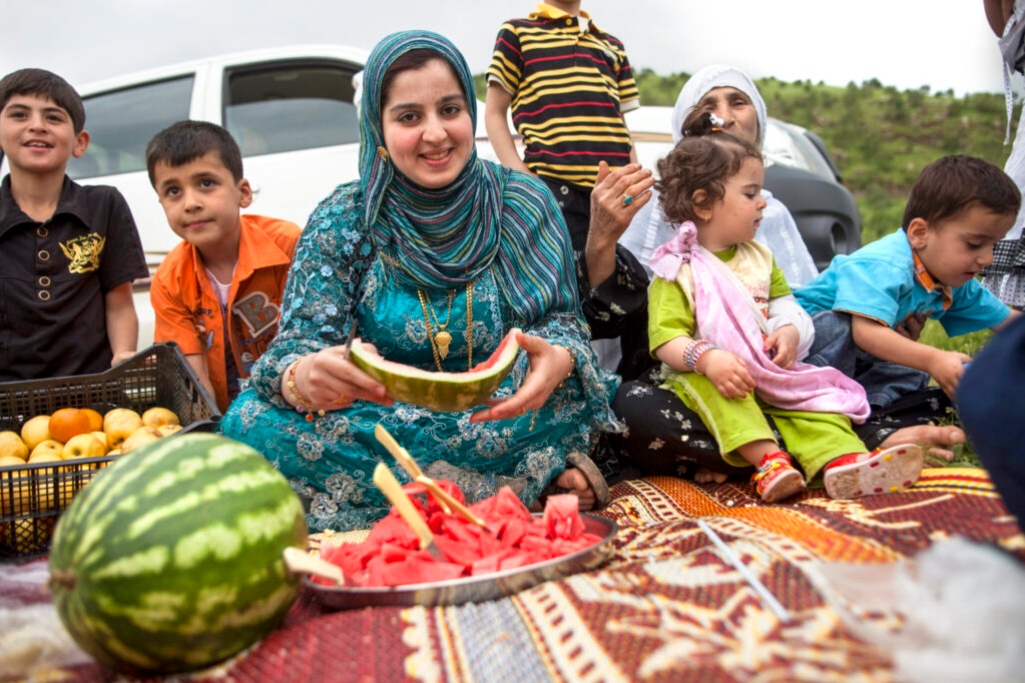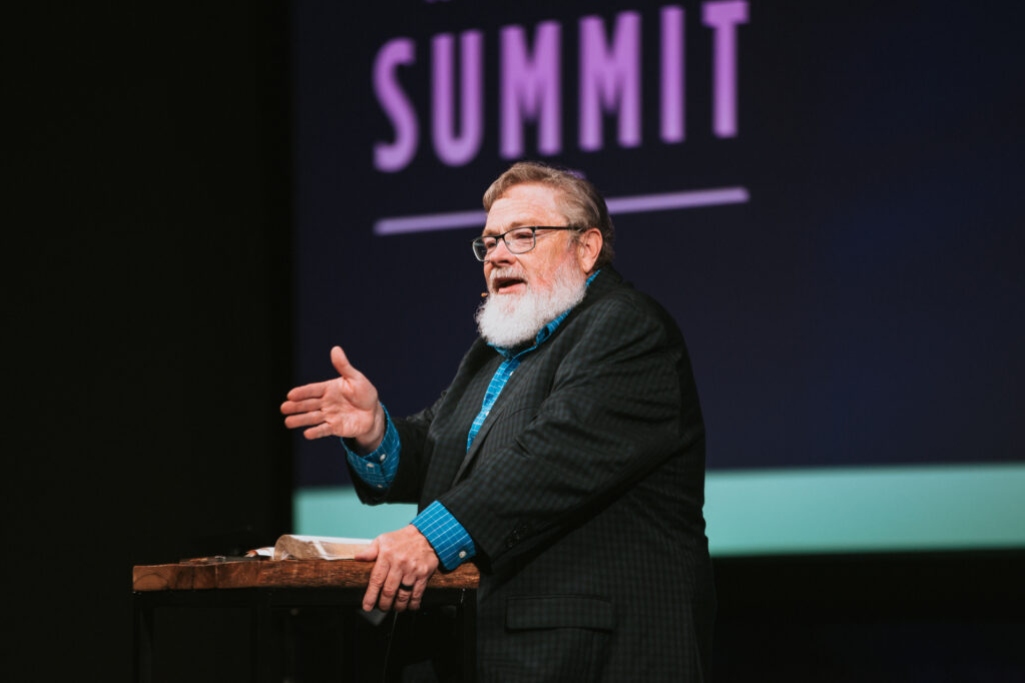
A family picnics along the roadside in the mountains as part of Eid al-Fitr. This celebration marks the end of Ramadan.
Imagine fasting for 28 days. No food or drink during daylight hours. It’s about more than testing your willpower. Your social standing and status with God depend on how well you do with this task.
For Muslims around the world, this is their reality for the next month. This year, Ramadan starts on the evening of Wednesday, March 22, and lasts until Friday, April 21. This is when every follower of Islam is encouraged — and in some cases, required — to spend the month exercising self-restraint, seeking to be aware of Allah and thinking about how they should best worship him.
This is also the time for Christians to join in earnestly seeking the Lord on behalf of the more than 1.7 billion followers of Islam. First, let us learn some basics about this Muslim holiday. Then, see how you can address one of the world’s greatest problems — spiritual lostness — with the Gospel.
What is Ramadan?
The yearly Ramadan fast is one of five orthodox practices that define Islamic culture and religion. Muslims who do not observe the fast are marked out as those who are not serious about their religion.
The focus of this month is a concentration of a Muslim’s energy and mind on an awareness of Allah and on the life of pious worship. Taqwa — awareness of God — is cultivated in several ways during Ramadan.
First, by fasting from sunup until the sun sets. When the thought of food, drink or cigarettes comes to mind, people are directed to think on Allah and to meditate on their responsibility to please him.
A second form of taqwa is by taking the finances that would have been used during the day to buy food and giving that money to the poor. Some Muslims provide meals for iftar, which is the breaking of the daily fast, after the sun sets for a larger group than just their own family.
A third way in which Muslims seek to experience heightened God-consciousness is through public readings and recitations of the Quran during the late evening hours when families are together.
How is Muslim fasting different from Christian fasting?
Christian fasting shares with Muslim fasting a desire to tangibly demonstrate that there is something — more precisely Someone — more ultimate than the gifts of creation. Like Muslims, Christians reject both the paths of asceticism and indulgence (Colossians 2:23). But Muslim and Christian fasting are still fundamentally different. Christian fasting is rooted in the completed work of Christ, to which our fasting can add nothing. Whereas Muslim fasting represents a longing for acceptance through the demonstration of submission, Christian fasting represents a longing for the One who purchased our acceptance by submitting Himself even unto death (Philippians. 2:8).
What is the ‘Night of Power’?
During the second half of the month of Ramadan, devout Muslims commemorate the night they believe Muhammed, the Islamic prophet, received the initial portion of the Quran. This year the event known as Laylat al-Qadr, or the Night of Power, will be observed on April 18. Since no one is certain as to which night during the month of fasting exactly parallels the historical revelation to Muhammad, Muslims spend several nights reading the Quran and in prayer leading up to that special night of the month.
This spiritual openness should mark a crucial time of prayer for Christians as we ask God to break through to Muslims and call them to faith in Jesus Christ as Lord and Savior.
Why is this a strategic time for Christians to pray for Muslims?
The month of Ramadan is a time when Muslims are very aware of dreams and visions. They believe dreams are a direct way that Allah chooses to reveal himself to people. During this time of heightened spiritual focus, Muslims are often seeking a special message or revelation. As Christians have prayed earnestly for their Muslim neighbors and friends during this season, they hear reports of dreams and visions in which Jesus appears to these friends and draws them to Himself.
Download the Ramadan Prayer Guide.
In fact, you will meet few Muslim-background believers who have come to Christ without an experience of this nature. During this time when Muslims are particularly aware of their spiritual hunger, barriers to the Gospel seem to be most effectively breached when Muslims dream of Jesus or dream of a Christian who has a life-giving message for them.
The reality is that every day, Muslims are dying without Jesus. Some have been presented with the truth of the Gospel and have rejected it, while others have never had the opportunity to respond to the Good News. We should view this month as a time to earnestly entreat our Heavenly Father to soften hearts to the message of salvation by grace through faith in Christ. We should also pray for an increase in Christian evangelical presence in Muslim communities across the globe.
How can Christians engage Muslim friends and neighbors?
A Muslim’s elevated sensitivity to spiritual matters during Ramadan usually creates an open atmosphere for discussions with Christian friends. During this season Christians are often invited to share an evening meal, an iftar, with their Muslim friends. You might even be invited to feast and celebrate the end of Ramadan, called Eid al-Fitr.
In this setting, spiritual discussions are frequently welcomed and encouraged by the Muslim hosts. The month of Ramadan is also an excellent opportunity for Christians to invite their Muslim friends to an evening meal, to give return hospitality, and to have dialogues on spiritual things.
Here are a couple of questions you could use to begin a spiritual conversation with one of your Muslim friends during Ramadan:
- Fasting during Ramadan seems to be both a personal and corporate experience. Can you help me understand some of the most meaningful aspects of this month for you and your community?
- As a Muslim, what do you mean by taqwa?
Questions like these move beyond the physical aspects of the fast to discover how our Muslim friends respond to God in daily life. Listening carefully and prayerfully to their answer will often encourage them to be more open to hear how you as a Christian seek to walk with God daily in the Word and the Spirit.
Note: Mike Edens contributed to a previous version of this article, first published May 22, 2017.


